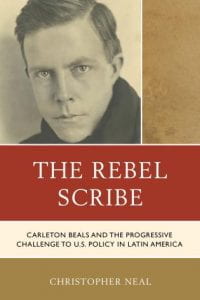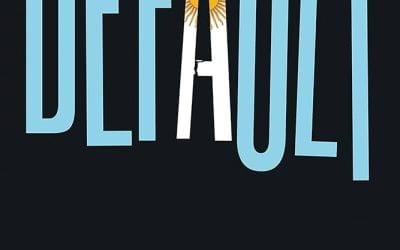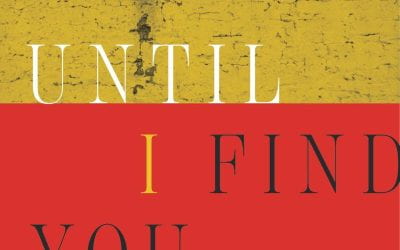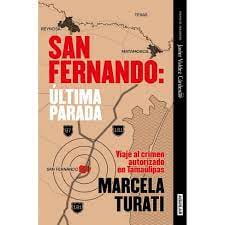A Review of The Rebel Scribe: Carleton Beals and the Progressive Challenge to U.S. Policy in Latin America

A Review of The Rebel Scribe: Carleton Beals and the Progressive Challenge to U.S. Policy in Latin America by Christopher Neal (Rowman and Littlefield/Hamilton Books, 2022)
This is how the adventure of the 25-year-old from Kansas begins: “I began to dream dreams, extravagant dreams. I would stay here in this city of the Aztecs and the Conquistadors and live and achieve success. I would make money, I would enjoy life and win women.”
From that moment of conception in Mexico City, the adventure unfolds over decades. The dreamer becomes a fearless and intrepid foreign correspondent. He immerses himself in the life of ordinary Latin Americans, meets their leaders, traipses through jungles and over mountains and writes hundreds of articles and 40 books. Best of all, he maintains his independence. He struggles financially and cannot be hired for any fulltime job because his reports are too scathingly accurate. In retrospect, however, he ranks among the great journalists of the 20th century.
The remarkable figure who lived that dream, Carleton Beals, was also one of my role models. For me or anyone setting out on a career as a foreign correspondent, there’s hardly a better one. He put integrity first, he wrote what he saw, he never parroted any official line and he refused to kowtow before imperial proconsuls or rapacious corporate looters.
“Beals argued that most US media presented a distorted picture that led Americans to perceive the US role in the world as promoting freedom and democracy, disguising its true neo-imperialist goals,” according to this new biography by Christopher Neal, who was himself a freelance reporter in Central America during the 1980s. “Beals’s posthumous marooning as a stranded ghost in the annals of American journalism history is due, in large measure, to intolerance of journalists who make a habit of challenging the ethics behind the actions of America’s leaders.”
Beals was born in 1893 to parents who supported socialist candidates and militant labor unions. He studied under the pioneer anthropologist Franz Boaz at Columbia and was jailed for several months after refusing induction into the military during World War I. Footloose and adventurous, he made his way to Mexico, where he found work at an American school and gave lectures about Shakespeare. Then, unexpectedly, Mexico exploded in turmoil. In 1920 Victoriano Carranza’s government fell and was replaced by a new regime under Álvaro Obregón. Suddenly people from the United States wanted to know what was happening in Mexico. Beals filed his first articles, for The Nation and The North American Review. He didn’t stop writing until his death more than half a century later.
Over that long period, Beals saw much of the world. He covered Benito Mussolini’s epochal “March on Rome” in 1922 and wrote a prescient book about the advent of fascism in Italy. Then he traveled to the Soviet Union, about which he wrote: “This is dictatorship. Mussolini is just a child at this sort of thing.” He also covered the United States, exposing the hardships of sharecroppers and the injustices visited on the Scottsboro Boys, young African Americans who were falsely accused of rape in Alabama. He wrote biographies of figures who fascinated him for various reasons, among them Huey Long, Carrie Nation, Stephen Austin and Leon Trotsky. But he concentrated on Latin America, especially Mexico. His best-remembered biography is of the longtime Mexican dictator Porfirio Díaz.
During the period Beals lived there, roughly between the world wars, Mexico City was what Neal calls “a kind of Paris closer to home,” with a wide circle of local and expatriate artists and activists. Beals knew them all, from the communist painter Diego Rivera to President Plutarco Elias Calles. One of his first books, Mexico: An Interpretation, portrayed the clergy as largely responsible for the country’s backwardness and described the ways American oil magnates colluded with ambassadors (“kissers of the feet of aristocrats”) to shape U.S. policy toward Mexico. These and his later writings, Neal asserts, “confirmed Beals’s status as one of America’s foremost interpreters of Mexico.”
No single country, however, could hold the interest of such a restless soul. Beals traveled through much of the continent, immersing himself in peasant life but also interviewing the continent’s greatest democratic revolutionaries, including Juan José Arévalo, Guatemala’s first freely elected president; the Peruvian visionary Raul Haya de la Torre; and the future Bolivian leader Víctor Paz Estenssoro. He also became a passionate critic of the Cuban dictator Gerardo Machado. One day in 1932 he even turned up to interview two Cuban activists in Havana and found them in a pool of blood, having just been murdered by Machado’s thugs. His book The Crime of Cuba, featuring photos by Walker Evans, is a slashing and well-documented denunciation of U.S. support for repression in that country. He recognized that in Cuba and much of the continent, “the extraction of vast quantities of raw materials has tended to accentuate feudal evils, to accentuate militarism, to forestall democracy, and to prevent the amalgamation of the social groups, the races, the classes and the cultures.”
In parts of Latin America Beals became a celebrity, cheered as “el gran periodista yanqui” for daring to write about the ways American corporate power was ravaging their continent. He was often in trouble with U.S. authorities, who opened files on him and tried to convince him unsuccessfully to moderate his views. In Mexico he set off a diplomatic furor by accusing the U.S. ambassador, Henry Lane Wilson, of “direct moral responsibility” for the death of Mexican President Francisco Madero because he had encouraged the coup in which Madero was killed. Beals got away with it because he knew his facts and never retreated from them.
I first heard of Beals in connection with Nicaragua, which I began covering in the 1970s as a young freelancer. He was the only journalist ever to have interviewed the revolutionary hero Augusto César Sandino. The assignment came in 1928 from The Nation, where Beals had developed a strong relationship with the managing editor and future U.S. Senator Ernest Gruening. He jumped at the chance, making his way to Honduras and then embarking on a grueling two-week trip by horseback to Sandino’s territory in northern Nicaragua. This story takes up a chapter in The Rebel Scribe and is told even more vividly in Beals’s six-part series for The Nation and the book that came out of his trip, Banana Gold.
“Several days ago I rode out of the camp of Augusto César Sandino, the terrible ‘bandit’ of Nicaragua who is holding the Marines at bay,” Beals wrote. “’Do you still think of us as bandits?’ was his last query as I bade him goodbye. ‘You are as much a bandit as Mr. Coolidge is a Bolshevik,’ was my reply. ‘Tell your people,’ he returned, ‘that there may be bandits in Nicaragua, but they are not necessarily Nicaraguan.’”
This passage does not appear in The Rebel Scribe, and although the book provides a vivid account of Beals’s life, it gives remarkably little space to his own voice. This is especially frustrating since Beals’s own books are out of print and hard to find. Yet like Beals’s first biographer, John A. Britton, Neal clearly finds him an admirable figure. How could you not? He deserves to be celebrated, and The Rebel Scribe adds richly to our knowledge of both 20th-century Latin American history and the history of American journalism.
Beals’s refusal to sing from the imperialist hymnal led to his lifelong exclusion from the mainstream press. As years passed and the Cold War intensified, even his few regular outlets began to dry up. Houghton Mifflin refused to publish a book in which he described U.S. allies like Rafael Trujillo and Anastasio Somoza as “unsavory” dictators and asserted that U.S. diplomats in Argentina were “strenuously conspiring” to depose that country’s government. The New Republic turned down his report on the CIA’s 1954 coup in Guatemala for “lack of space.” The Nation, The Progressive and Harper’s also stopped publishing his work. He enjoyed one late moment of unexpected recognition when he won a Grammy award in 1964 for album notes he wrote to accompany an album of Mexican folk music.
“To the extent that he has been remembered, Beals is usually identified as a ‘radical journalist’ associated with Latin America,” Neal concludes. “But this overlooks the major problem Beals sought to address in his work, that is, authoritarianism and related aspects such as dictatorship, populism, militarism, corporatism, and imperialism…His analytical framework anticipated critiques of US foreign policy by C. Wright Mills, cold war revisionist historian William Appelman Williams, and the libertarian anarchist Noam Chomsky. In all his political writings, Beals held to the contention that US foreign policy was directed by and for an elite that dominates America’s banks, corporations, government, military—and media…Beals’s exceedingly skeptical, even cynical perspective on US intervention explains his dismissal of so-called US liberal internationalism in the Wilsonian tradition as reeking of hypocrisy.”
The Howard Gottlieb Archival Research Center at Boston University holds Beals’s papers. My own papers, much fewer but including material from my years in Nicaragua, are also there. I bask in our proximity.
Stephen Kinzer was the New York Times bureau chief in Nicaragua during the 1980s. He is the co-author of Bitter Fruit: The Story of the American Coup in Guatemala and author of Blood of Brothers: Life and War in Nicaragua.
Related Articles
A Review of Default: The Landmark Court Battle over Argentina’s $100 Billion Debt Restructuring
In February 2019, I found myself serving as the special attorney general for the then newly recognized interim government of Venezuela, tasked with addressing more than 50 claims before the U.S. courts stemming from the $140 billion debt inherited from Hugo Chávez and Nicolás Maduro.
A Review of Until I Find You: Disappeared Children and Coercive Adoptions in Guatemala
A student in my “Introduction to Cultural Anthropology” course at the University of Delaware approached me several weeks ago, after hearing about my long-term research in Guatemalan communities, to tell me that they were born there, in Guatemala.
A Review of San Fernando: Última Parada, Viaje al crimen autorizado en Tamaulipas
One of Mexico’s best investigative journalists, Marcela Turati, takes readers to terrorized and traumatized San Fernando, a town known for dozens of mass graves, and exposes the depths of criminal brutality and official corruption that hid the bodies and the truth for years.




